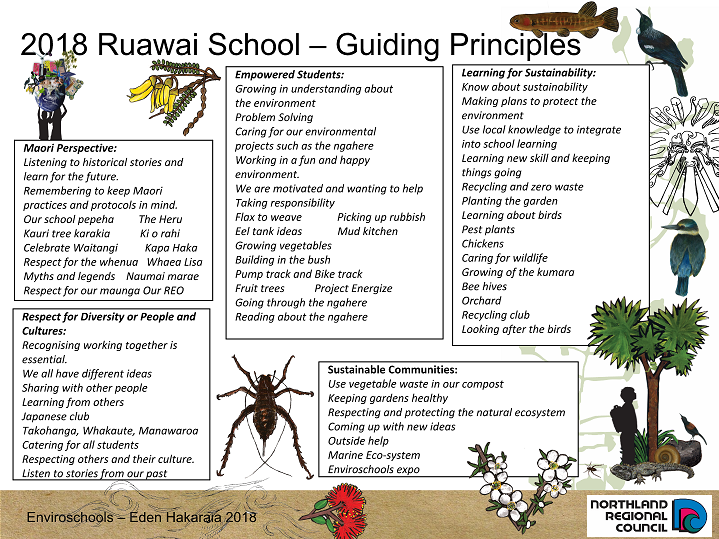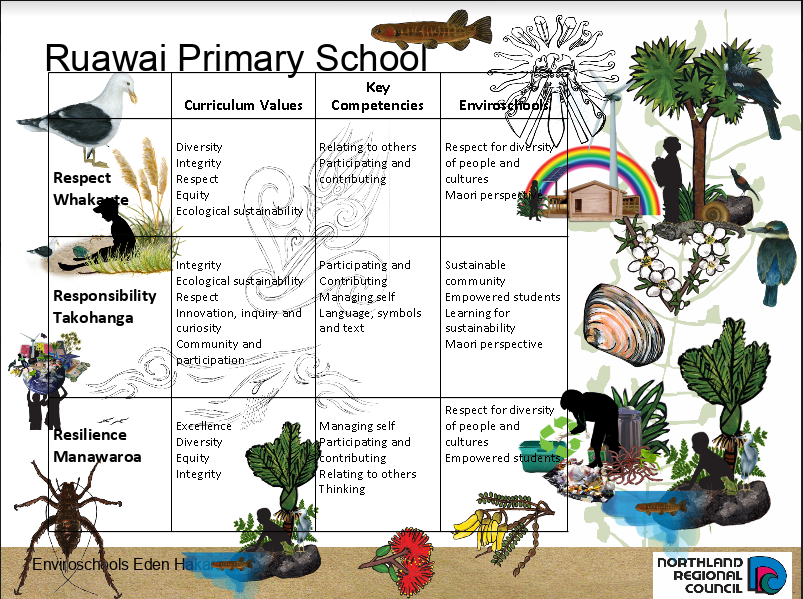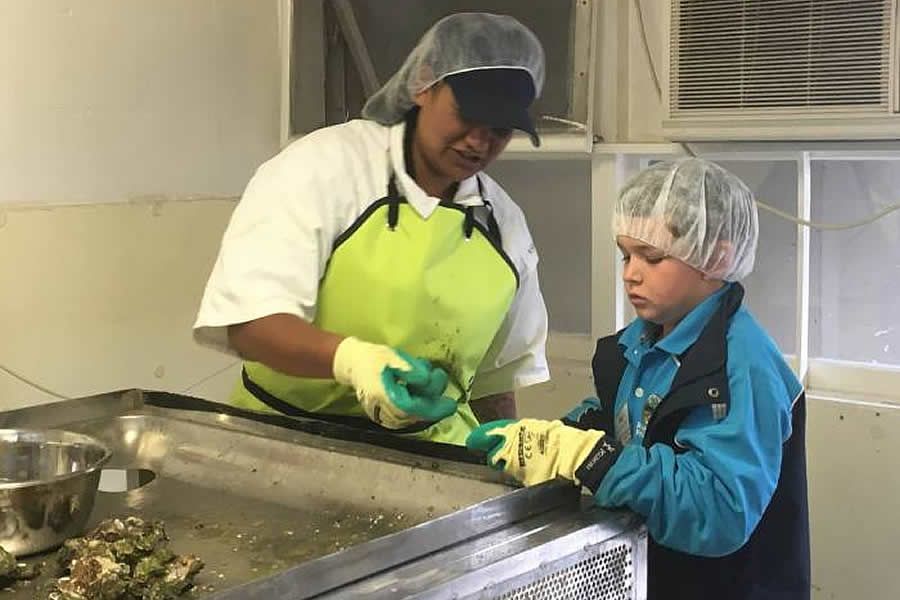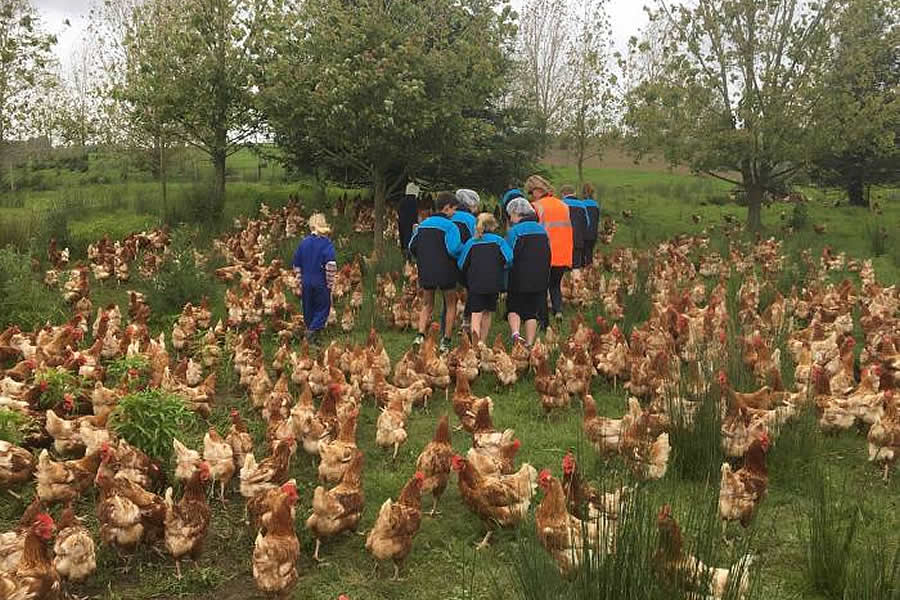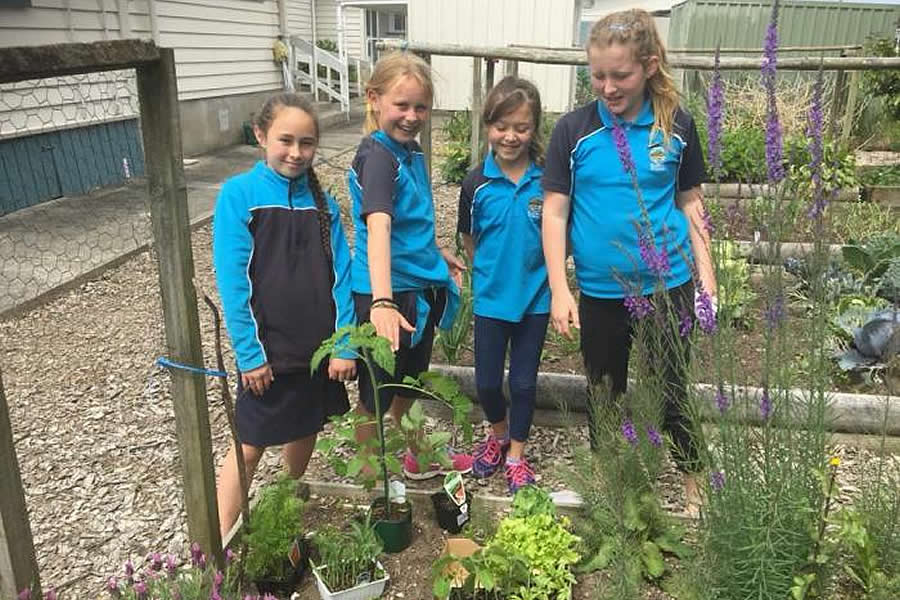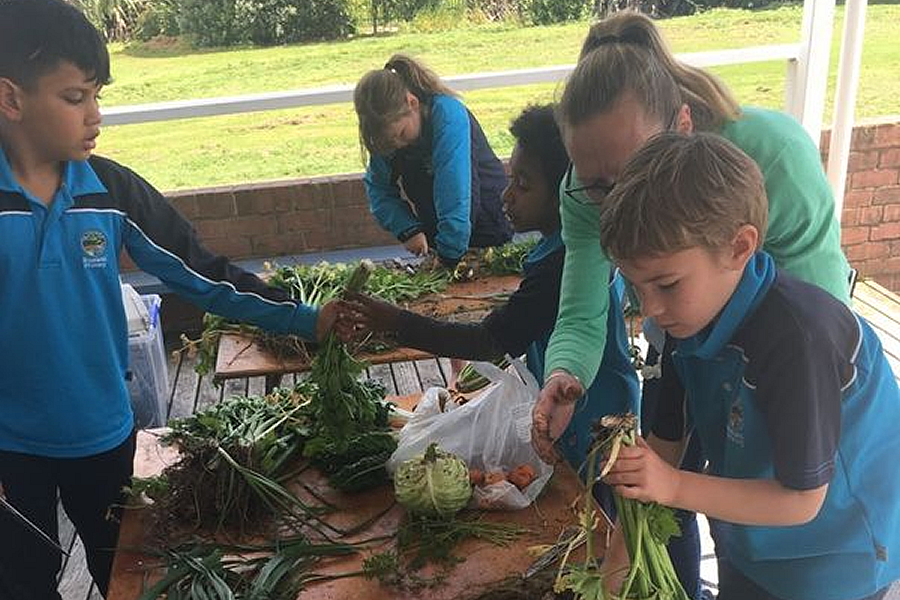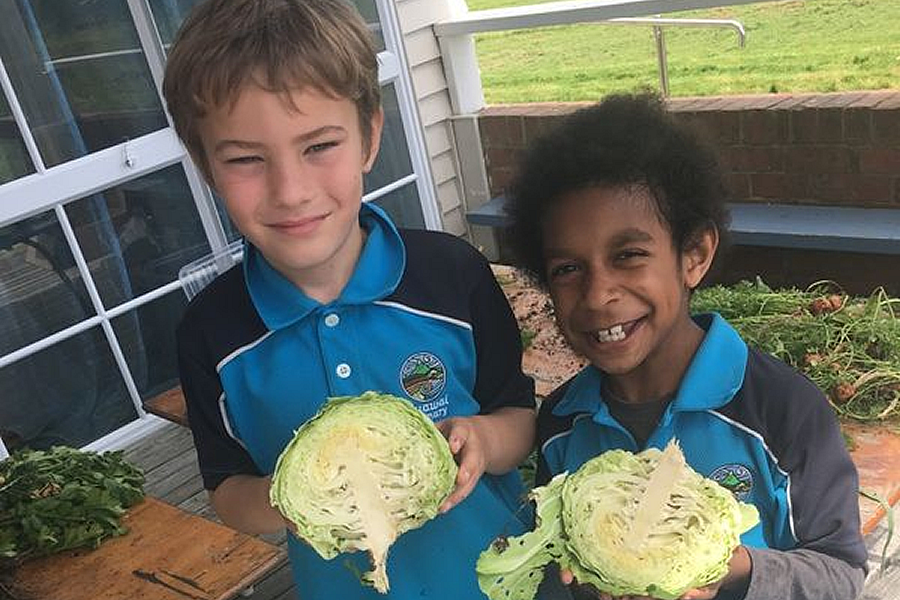Aspirational Profile for
Ruawai Primary Learners
We aim to become and remain...
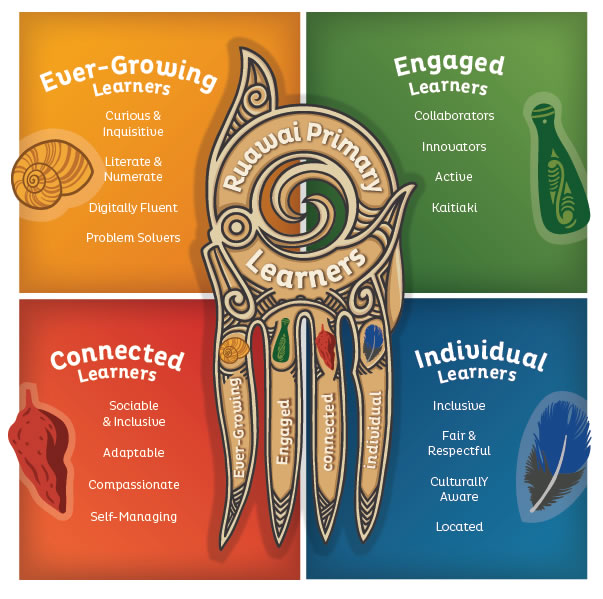
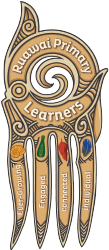
The heru symbolizes the uplifted symbol of Ngāti Whātua tribal authority and esteem or mana - something uniquely Ngāti Whātua to draw pride from and aspire to. It was the practice of Ngāti Whātua leaders to be at the forefront of travelling parties. These leaders could be easily recognised by the heru adorning the top knot of their hair.
Reporting
Due to the removal of National Standards, we are currently reviewing our reporting procedures. Two formal reports will still be sent home to report a child’s progress and achievement in Reading, Writing, Maths and other learning areas. We are currently exploring how to create a report that focuses more on the progress that your child is making in all curriculum areas, as well as the Learning Capabilities from our Vision above.
We are required to report on children’s progress against National Standards, twice a year. Up to the end of Year 3, children receive regular reports that are based on how long they have been at school. This means that reports are being completed every month in the junior school, so your child may not get a report at the same time as other children in the class. If you are unsure when your child is due for their next report, please ask their classroom teacher. From Year 4 – 6, reports are sent home in June/July and December.
From Year 4 – 6, reports are sent home in June/July and December. In Years 0-3, you can expect a report on your child’s progress at the following times:
(40 weeks = 1 year of schooling) After 20/40/60/80/100/120 weeks of schooling
Your child’s first report of the year (either progress or anniversary) will be supported with a 20 minute three-way conference. Progress Reports are completed at 20 weeks (5.5years), 60 weeks (6.5years), 100 weeks (7.5years), or if your child is Year 4 or older they will receive a mid-year report in June/July.
Anniversary Reports are completed at 40 weeks (6 years), 80 weeks (7 years), 120 weeks (8 years), or if your child is Year 4 or older they will receive a end of year report in December.
Please click on the following link to see our ‘Expected Levels of Achievement’ rubric which assists teachers in making their overall teacher judgments (OTJ) in relation to national standards
Learning Through Play
"WE DON’T STOP PLAYING BECAUSE WE GROW OLD
WE GROW OLD BECAUSE WE STOP PLAYING.”
GEORGE BERNARD SHAW
Play is an essential part of your child’s social, emotional, physical and cognitive development. For many teachers and parents ‘play’ has attracted a negative ‘time wasting’ connotation but in reality, play is a vital part of every child’s development. It allows them to test ideas, work through uncertainties, explore social interactions and make sense of the world around them. Play has no predetermined outcome or time limit. It is not about an end product but about a process. It’s the exploration of ideas that is crucial. Play is children’s work.
It can be argued that children today have fewer opportunities to play and be active than in the past. There is less time spent exploring the natural world, less time ‘doing their own thing,’ fewer opportunities to take risks and problem solve. There is more time in supervised, protected and confining activities that put boundaries on learning and creativity.
This is why we value our Discovery – Play based sessions. Our vision is to ‘Develop and nurture INDIVIDUAL learners who are ENGAGED, CONNECTED and EVER-GROWING.’ A play based curriculum can help us achieve this. Our intention is to continue to embed this type of learning throughout our curriculum.
Enviro Schools
